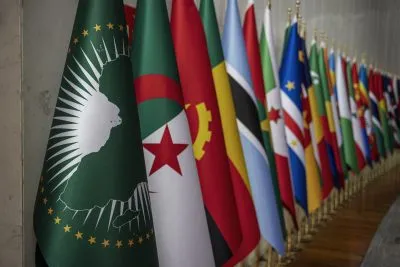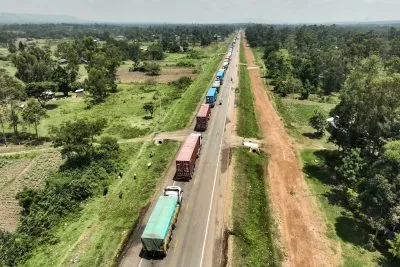Until recently, rapidly growing and well-funded African fintechs were mostly found in heavyweight tech countries like Egypt, Kenya, Nigeria and South Africa. The news that Wave, a Senegal-based mobile money provider, raised the biggest ever Series A round in Africa is a sign that things are starting to change.
The company, which was founded in 2018, raised $200m from four big Silicon Valley venture capital firms, pushing its valuation to $1.7bn – making Wave Africa’s first Francophone unicorn. The confidence placed by the US firms – Sequoia Capital, Founders Fund, Ribbit Capital and Stripe – in a mobile money provider that was built from the ground up in Senegal is evidence that investors are bullish on the West African market.
Wave was able to build a product that is used by more than half of Senegal’s 17m population in just three years.
“Today we are the first mobile money provider in Senegal in terms of the number of customers,” says Wave’s general manager, Coura Sene.“Our growth limit is the size of the of the population in Africa.”
Exception not rule
Wave’s success, however, is the exception not the rule in Senegal, where the technology sector is much less developed than in other African markets. The ecosystem – which is home to around 70 startups – had only raised around $26m in the whole of 2021, putting the latest raise by Wave into perspective.
The largest sector is fintech, making up 22% of the market, followed by logistics, according to data collected by Briter Bridges. The fledgling status of the market is consistent with the general trend that Francophone African markets are less developed when it comes to tech than their Anglophone counterparts.
While countries like Kenya and Nigeria boast an abundance of incubators, accelerators, investment funds and companies with over 10 employees, the scale is far smaller, even in Côte d’Ivoire and Senegal, Francophone Africa’s most promising tech countries.
“The mentality of Anglophone and Francophone is not the same, there is a much stronger aversion to risk in the French mentality,” says Victor Pied, digital project manager at l’Institut Français in Dakar, Senegal’s capital city. “In terms of regulation they also have a bit more flexibility in Anglophone markets.”
A good example of more cautious regulation is the licensing procedure in Senegal for fintech companies like Wave. Sene says that Wave chose to partner with a local bank rather than apply for an independent mobile money licence as a way to make the regulators feel more comfortable about the new technology.
Similar caution was applied by regulators in neighbouring markets like Nigeria until recently, whereas others in Kenya have adopted a more accommodating approach that allows companies to grow, with regulation catching up later. Now that Wave is growing rapidly and eyeing other markets like Côte d’Ivoire for expansion, the company has applied for an independent mobile money licence, Sene says.
Thomas Kowalczyk, Senegal country manager for Fleeti, a Senegal-founded fleet management startup, says that another problem is familiarising traditional businesses with technology-backed products. The startup helps delivery companies save as much as 20% on fuel consumption by providing them with real-time access to data and tracking on a digital platform. Since launching in April 2020, Fleeti has managed to onboard more than 2,500 clients working with a mix of French companies like retailer Auchan and local companies.
“With Senegalese or Lebanese companies, it’s a bit more difficult, you have to prove to clients how the system will help them,” says Kowalczyk. “We offer them our system for two weeks and show them how they can save money and save time by controlling the fleet. It’s a lot of work at the beginning.”
As one of the larger tech companies in the market, Fleeti, which was founded by two French citizens, one who previously led the establishment of Jumia in Senegal, will soon announce seed funding to fuel its expansion, Kowalczyk says. It has set bold targets of expanding into 15 African countries by 2023.
Positive market
However, despite a slow start Senegal’s tech sector is beginning to grow rapidly.
“It is really changing fast,” says Kowalczyk. “It is not the biggest country if you compare it to other countries in terms of GDP but you still have a lot of startups, investment funds and loans. Things are changing really fast in terms of digitisation.”
One of the benefits in Senegal is that there is no shortage of talent, Kowalczyk says. The government has put great emphasis on primary and secondary education following the early direction set by its revered independence leader Léopold Sédar Senghor. Many Francophone students from countries in the region including Togo, Benin, Burkina Faso and Côte d’Ivoire come to study in Senegal, which leaves a wealth of talent in the market after they graduate.
The government has also made some important improvements to the ecosystem in recent years.
“From the point of view of regulation there has been a big push called the Startup Act which gives startups two years of operations without taxes,” says Pied. “It is a big advantage, and it was introduced under [President] Macky Sall.”
Indeed, many entrepreneurs in the ecosystem praise the current president for taking a keen interest in the technology sector.
The sector is also being spurred on by a range of independent actors including Jokkolabs, a co-working space and incubator which has since expanded into eight other African markets, and Teranga Tech, a French-Senegalese incubator and accelerator.
One of the issues, however, is that the majority of funding being pumped into the market is grant money or concessional financing as opposed to equity financing. Very few Senegalese tech companies have raised anything over $1m as most of them are still in their infancy.
Some of the biggest investors in the space are Partech, a global investor in technology, and Orange Digital Ventures, a well-funded offshoot of the French telco. The raise by Wave is expected to draw attention from non-Francophone funds and investors who previously had only limited exposure to Senegal’s tech market.
Want to continue reading? Subscribe today.
You've read all your free articles for this month! Subscribe now to enjoy full access to our content.
Digital Monthly
£8.00 / month
Receive full unlimited access to our articles, opinions, podcasts and more.
Digital Yearly
£70.00 / year
Our best value offer - save £26 and gain access to all of our digital content for an entire year!
 Sign in with Google
Sign in with Google 



